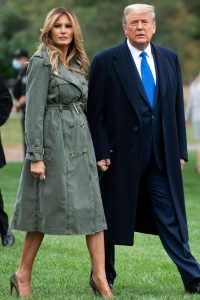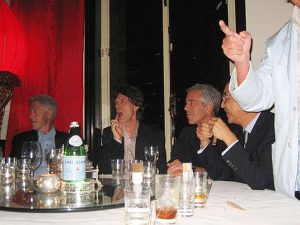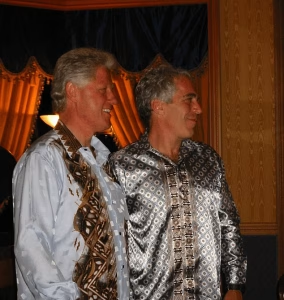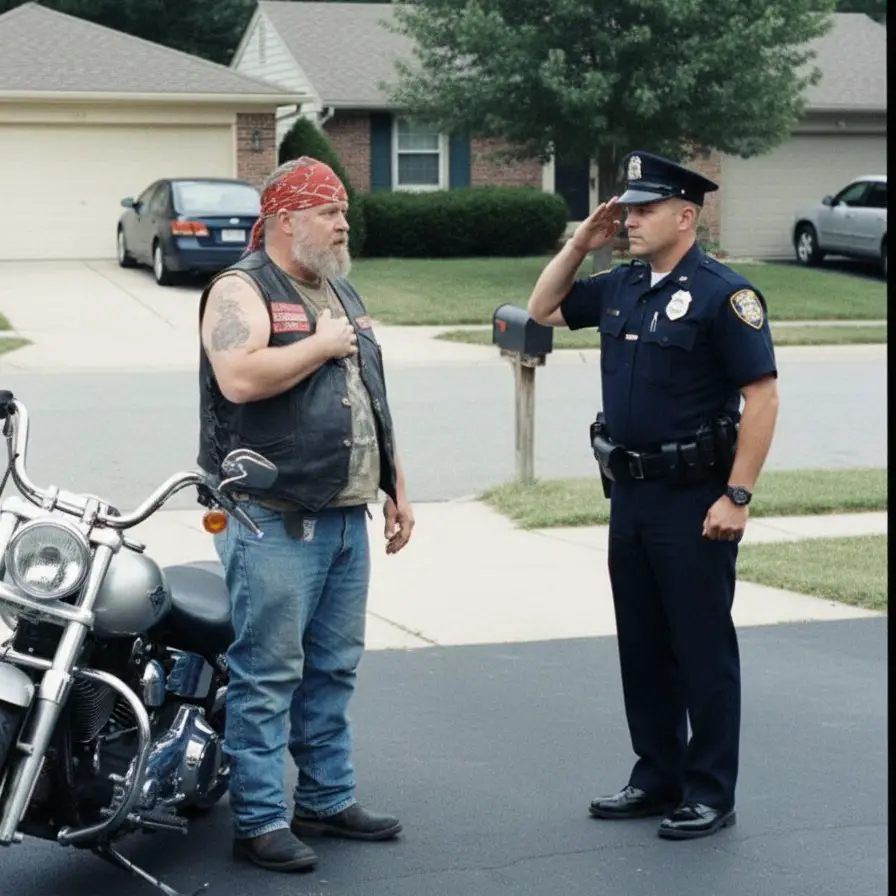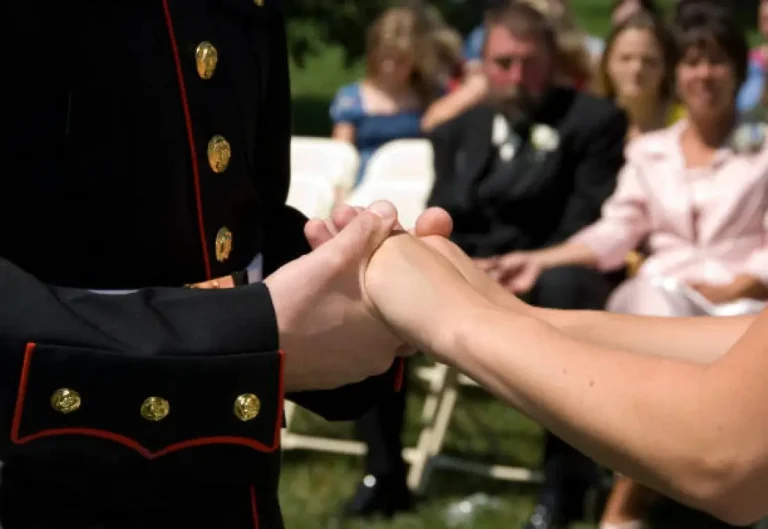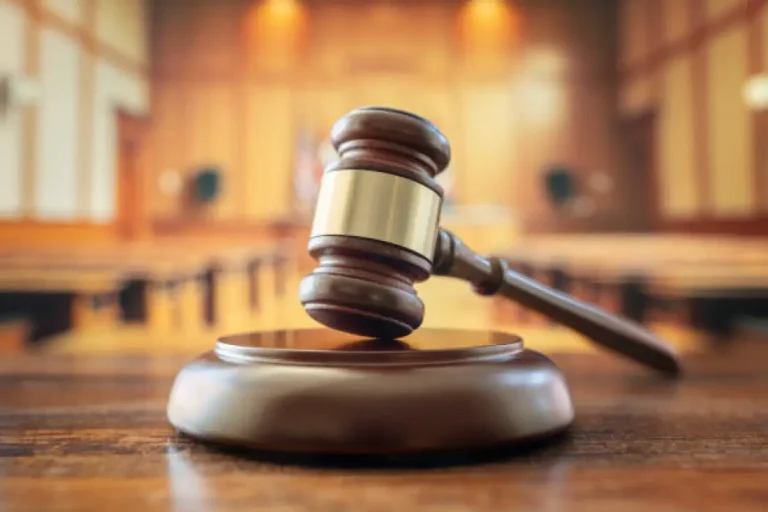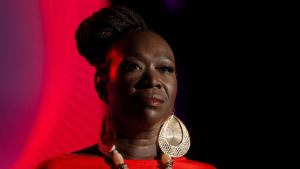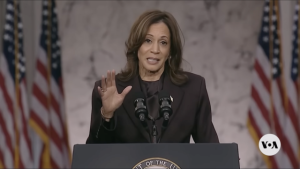I Called Police on My Father’s Motorcycle – What the Officer Told Me Changed Everything
Sometimes the things that embarrass us most about our parents turn out to be the things that make them heroes to others. This is the story of how a teenage complaint to police became a life-changing lesson about sacrifice, service, and seeing beyond our own assumptions.
The Call That Backfired
At sixteen, I thought I had my father figured out completely. Mike Harrison was the embarrassing dad with the impossibly loud Harley-Davidson, the leather vest covered in patches, and an obsession with motorcycle culture that had, in my teenage mind, ruined our family’s chances at normalcy.
Standing at my bedroom window that Tuesday morning, watching him polish the chrome on that ancient bike for what felt like the thousandth time, I made a decision that would change everything I thought I knew about the man who raised me.
I called 911.
“I’d like to report a noise complaint,” I told the dispatcher, my voice steady with righteous indignation. “There’s a man in our neighborhood who starts his motorcycle every morning at dawn. It’s disturbing the peace.”
The dispatcher took down our address while I continued watching Dad work on his bike, completely unaware that his own daughter had just reported him to the police like he was some common criminal. In that moment, I felt a surge of vindication. Finally, someone with authority would make him see how his selfish hobby was affecting everyone around him.
Years of Resentment
My hatred for that motorcycle hadn’t developed overnight. It had been building for years, fed by a steady diet of teenage embarrassment and family trauma that I’d laid squarely at the feet of Dad’s “other woman”—his beloved Harley.
The bike had been there when Mom packed her bags and left us three years earlier. I still remembered her exact words: “I can’t compete with that machine anymore, Mike. You love it more than you love us.” At thirteen, those words had planted a seed of resentment that had grown into full-blown anger by the time I reached high school.
Every morning, Dad’s 6 AM routine began with the thunderous roar of that engine warming up in our driveway. Every weekend was consumed by motorcycle events, charity rides, or club meetings that took him away from home. Every conversation seemed to circle back to bikes, bike maintenance, or stories from the road that I had no interest in hearing.
My friends’ parents drove sensible sedans and minivans. They wore business casual clothes and attended PTA meetings. My dad showed up to school events in leather chaps and boots that announced his arrival three blocks away.
The Officer’s Unexpected Response
Twenty minutes after my call, I watched a police cruiser pull up in front of our house. This was it—the moment when official authority would finally validate all my complaints about the noise, the embarrassment, and the disruption that motorcycle had brought to our lives.
But Officer Reynolds didn’t march over to arrest my father or issue him a citation. Instead, he walked slowly across our yard, and when he reached Dad, he snapped to attention and saluted him before extending his hand in what looked like a greeting between old friends.
I pressed closer to my window, straining to hear their conversation. Dad pointed toward our house, and both men looked directly at my bedroom window. My heart raced as I ducked down, suddenly realizing that somehow, they knew exactly who had made that call.
Five minutes later, Dad knocked on my bedroom door with a heaviness in his voice I’d never heard before. “Katie, Officer Reynolds wants to talk to you.”
When I finally worked up the courage to face them, I expected to receive a lecture about filing false police reports. Instead, I found myself looking at a man whose disappointment cut deeper than any anger could have. Dad wasn’t furious—he was heartbroken.
The Photo That Changed Everything
Officer Reynolds stood in our living room with his hat in his hands, but instead of delivering the reprimand I expected, he pulled out his phone and showed me a photograph that shattered every assumption I’d ever made about my father and that motorcycle.
The image showed a little girl, maybe four years old, lying in a hospital bed surrounded by medical equipment that seemed to dwarf her tiny frame. She was clutching a teddy bear dressed in a miniature leather vest that looked exactly like the ones I’d seen Dad’s motorcycle club wear.
“That’s my daughter, Lily,” Officer Reynolds said quietly, his voice carrying the weight of a story I wasn’t prepared to hear. “Four years ago, she was dying from kidney failure. We’d exhausted all our family options for donors, and her time was running out. Your father read about her case in the local paper.”
I looked at Dad, confusion replacing my earlier defiance. He was staring at the floor, his hands clasped behind his back in the same posture I’d seen him adopt during difficult conversations.
“Your father volunteered to be tested for compatibility,” the officer continued. “When the tests came back showing he was a perfect match, he never hesitated. He donated one of his kidneys to save my daughter’s life, and he’d never even met us.”
The room seemed to tilt around me. “What?”
The Sound of Life
“But that’s not the end of the story,” Officer Reynolds continued, scrolling to another photo. “Every month since the transplant, your father rides Lily to her follow-up appointments on that Harley you complained about. She says the sound of the engine reminds her that she’s alive, that someone cared enough to give her a second chance.”
The noise complaint I’d filed—that “awful racket” that woke me up every morning—suddenly took on an entirely different meaning.
“The sound you reported as a disturbance? That’s what my eight-year-old daughter calls her heartbeat. Every time she hears a Harley engine, she knows there are people in the world who will sacrifice for strangers, who will show up when it matters most.”
I felt physically sick. “Dad never told me any of this.”
“Because that’s exactly the kind of man your father is,” Officer Reynolds replied, his voice filled with respect I’d never heard anyone use when talking about Dad. “He doesn’t do good deeds for recognition or praise. But there’s something else you should know—Lily isn’t the only child he’s helped.”
“What do you mean?”
Dad finally spoke up, his voice barely above a whisper. “The motorcycle club. We do medical transports, organ donation awareness events, fundraising for families who can’t afford treatment.”
A Legacy of Service
Officer Reynolds pulled up more photos on his phone, each one representing another story I’d never heard, another life Dad had touched while I was busy being embarrassed by his lifestyle.
“This is Tommy Martinez,” he said, showing me a picture of a boy with no hair, clearly undergoing chemotherapy treatment. “Your father’s motorcycle club raised thirty thousand dollars for his cancer treatment when insurance wouldn’t cover the experimental therapy he needed.”
Another swipe revealed a teenage girl with a bright smile despite the medical equipment visible in the background. “Sarah Chen. When a pharmacy mix-up delayed her anti-rejection medication after a liver transplant, your dad rode eight hours through a snowstorm to deliver the drugs she needed to survive.”
Each photograph felt like a physical blow. Children with cancer, kids with disabilities, families facing medical crises I couldn’t even imagine—all of them connected to my father through that loud, embarrassing motorcycle I’d spent years resenting.
The Truth About Mom
“But Mom left because of the bike,” I said weakly, grasping for some way to maintain my worldview. “She said Dad chose it over us.”
Dad’s expression grew even sadder. “Your mother asked me to sell the Harley. She said if I really loved our family, I’d give up the motorcycle club and all the time it took away from home.”
“Why didn’t you?”
“How do you choose between your family’s comfort and dying children’s lives?” he asked simply. “Every time I thought about selling that bike, I pictured Lily waiting for her kidney, or Tommy needing money for treatment, or Sarah needing someone to deliver her medication.”
The weight of his dilemma settled over me like a heavy blanket. “Mom didn’t understand.”
“I tried to explain, but she saw the time I spent away from home, the money that went to medical fundraisers instead of family vacations, the phone calls at all hours from parents whose kids needed help. She couldn’t see past what the motorcycle club was taking from us to understand what it was giving to others.”
My Father’s Impossible Choice
Officer Reynolds prepared to leave, but before he did, he delivered one final piece of information that completed the picture I’d been blind to for years.
“Katie, your father has saved more lives with that ‘stupid Harley’ than most doctors ever will. The children’s hospital has a whole wall dedicated to thanking him and his club for their service. Maybe it’s time you saw what he really does with his time.”
After the officer left, Dad and I sat in silence that stretched between us like a bridge I wasn’t sure I was ready to cross. Finally, I found my voice.
“Can you show me? What you do, I mean?”
His face lit up with the first genuine smile I’d seen from him in months. “This weekend, if you want. We’re visiting the children’s ward at St. Christopher’s Hospital.”
Seeing My Father Through New Eyes
That Saturday morning, for the first time in my sixteen years, I climbed onto the back of Dad’s Harley-Davidson. As we rode through the city streets toward the hospital, I tried to imagine how different this experience was for the sick children who depended on these visits compared to the embarrassment it had always caused me.
When we pulled into the hospital parking lot, an entire pediatric ward seemed to come alive with excitement at the sound of Dad’s motorcycle. Children appeared at windows, waving and cheering as if a celebrity had arrived.
“Big Mike!” shouted a little boy on crutches, his face beaming with joy. “You came back!”
“I always come back, buddy,” Dad replied, his voice carrying a warmth I’d rarely heard him use at home.
For the next three hours, I watched my father transform before my eyes. The embarrassing biker dad I’d known my entire life became something else entirely—a hero, a friend, a beacon of hope for children facing challenges I could barely comprehend.
The Hero I Never Knew
Dad gave “motorcycle rides” to kids in wheelchairs, making engine sounds while pushing them through the hospital corridors. He delivered toys that his club had collected throughout the year. He sat with a teenage boy receiving chemotherapy, teaching him motorcycle maintenance from a manual because the kid dreamed of riding someday when his treatment was finished.
“Your father is the most wonderful man,” a mother told me, tears streaming down her face as she watched Dad help her young son pretend to steer an imaginary Harley. “When our insurance company refused to cover David’s surgery, your father’s club raised every single penny we needed. They literally saved my child’s life.”
During the ride home, I held onto Dad more tightly than necessary. When we stopped at a red light, I spoke into his helmet: “I’m sorry. For everything. For not understanding.”
“I know, sweetheart. I know.”
“Mom doesn’t really know about all this, does she?”
“She knew some of it, but she wanted me to choose between the family I had and the children I was helping. She couldn’t understand that the motorcycle wasn’t just a hobby—it was how I could make a real difference in the world.”
Making Amends
That evening, I called my mother for the first time in months. I told her everything I’d learned—about Lily’s kidney, about the fundraising, about the medical transports, about the wall of thank-you letters at the children’s hospital.
The silence on the other end of the line stretched so long I thought she’d hung up.
“He never told me about donating his kidney,” she finally said, her voice thick with emotion I couldn’t quite identify.
“He never tells anyone about the good things he does,” I replied, suddenly understanding my father in a way I never had before. “That’s just who he is.”
The next morning, I found Dad in the garage polishing that Harley like he did every day. But this time, instead of rolling my eyes and walking away, I grabbed a cleaning cloth and started helping.
“Katie?”
“Teach me,” I said. “About the motorcycle, about what you do, about all of it. I want to understand.”
His smile was worth every moment of embarrassment I’d ever felt about having a biker for a father.
Learning to Ride, Learning to Serve
Three years have passed since that morning when I called the police on my own father. I now ride my own motorcycle—not a Harley yet, because as Dad says, I need to “earn” that honor—but a Honda that purrs rather than roars. I’m an active member of the club’s junior auxiliary, helping with the same children I once thought were stealing my father from me.
The transformation hasn’t just been about learning to ride or joining the club’s charitable activities. It’s been about understanding what real service looks like, what sacrifice means, and how sometimes the people who seem most different from us are actually the ones doing the most important work.
Last month at a fundraising event, Lily Reynolds—now eight years old and healthy thanks to my father’s kidney—ran up to me with the boundless energy of a child who knows she’s been given a second chance at life.
“Katie! Are you riding in the charity run next weekend?”
“Wouldn’t miss it,” I told her, hugging the girl who exists because my father was willing to give part of himself to save a stranger.
“Your dad’s motorcycle is super loud,” she said matter-of-factly, “but that’s my favorite sound in the whole world.”
“Yeah,” I agreed, watching Dad across the room surrounded by people whose lives he’d touched, whose children he’d helped save. “Mine too.”
The Sound of Heroism
The motorcycle I’d hated so much, the one I’d thought was Dad’s “other woman,” wasn’t a symbol of misplaced priorities or selfish indulgence. It was his calling—the vehicle that carried him to sick children, the tool that helped him raise money for medical treatments, the symbol that connected him to a community of people dedicated to helping others.
I called 911 on my father that day thinking I was putting an end to his embarrassing biker lifestyle. Instead, I discovered who he really was: not just a man with a loud motorcycle and an extensive collection of leather vests, but someone who had literally given pieces of himself to save strangers’ children.
The sound that had annoyed me every morning wasn’t just noise—it was the announcement that someone who cared was starting his day. Someone who would drop everything if a child needed help. Someone who had chosen to help others even when it cost him his marriage and his daughter’s respect.
A Different Kind of Love Story
Dad still rides that same Harley-Davidson. If anything, it’s gotten louder over the years, but when I hear it rumble to life at dawn now, I don’t bury my head under my pillow in annoyance. Instead, I smile, knowing that somewhere, a sick child is counting on that sound. Somewhere, a parent is praying for that motorcycle to arrive with help, hope, or just the comfort of knowing someone cares.
The children’s hospital where Dad volunteers has a wall dedicated to thanking him and his motorcycle club. There are hundreds of photos—children who’ve beaten cancer, kids who’ve received successful transplants, families who’ve been supported through their darkest hours. In the center of that wall is a plaque that reads: “To the bikers who prove that heroes come in all forms, and that sometimes the loudest engines carry the biggest hearts.”
Understanding True Service
My father’s story teaches us several important lessons about service, sacrifice, and the danger of judging others based on surface appearances:
Service doesn’t always look like we expect it to. The traditional image of a helper—the doctor in a white coat, the teacher in a classroom, the social worker in an office—doesn’t encompass all the ways people make a difference. Sometimes heroes wear leather and ride motorcycles.
The most meaningful sacrifices are often invisible. Dad never talked about donating his kidney, never mentioned the fundraising efforts, never sought recognition for the countless hours he spent helping sick children. True service is rarely about getting credit.
Our assumptions about others’ motivations are often wrong. I spent years believing Dad cared more about his motorcycle than his family, when the reality was that the motorcycle was his way of caring for an extended family of children who needed help.
Sometimes love means making choices others don’t understand. Dad’s decision to continue his volunteer work even when it cost him his marriage wasn’t about choosing strangers over family—it was about recognizing that some responsibilities transcend personal comfort.
The Legacy Continues
Today, I’m proud to be part of a community that measures success not in money or status symbols, but in lives saved and families helped. The motorcycle club that once embarrassed me has become a second family, united by a commitment to showing up when others need help most.
We organize blood drives, raise money for medical expenses, provide transportation for families dealing with medical crises, and maintain a 24/7 network for emergency situations. The “loud, obnoxious bikers” that some people cross the street to avoid are the same people who will drive through the night to deliver medication, who will empty their wallets to help pay for a child’s surgery, who will give pieces of themselves—literally, in my father’s case—to save strangers.
The Sound of Hope
That embarrassingly loud Harley-Davidson that I once wanted impounded has become the soundtrack of hope for dozens of families. Its rumble announces the arrival of help, the presence of people who care, the reality that no one has to face medical crises alone.
When Officer Reynolds showed up that day in response to my complaint, he could have simply told me to stop filing frivolous reports. Instead, he chose to educate me about the man I’d been too proud and self-absorbed to really see. His patience with my ignorance changed not just my relationship with my father, but my entire understanding of what it means to serve others.
A Father’s Love, Redefined
I used to think Dad’s love for his motorcycle meant he loved his family less. Now I understand that his commitment to helping sick children was actually an expression of the same protective instinct that made him a good father—expanded to include children whose own fathers couldn’t save them.
Every dawn ride, every charity event, every hospital visit was Dad’s way of being the father he wished he could be to every child facing a medical crisis. The kidney he gave to Lily, the money he raised for Tommy, the emergency medication runs for Sarah—these weren’t substitutes for caring about his own family. They were extensions of it.
The man I once called the police on for being too loud has taught me that real heroism is often quiet, that the most important work happens away from spotlights and recognition, and that sometimes the greatest love is the kind that asks nothing in return.
Today, when that familiar engine roars to life in our driveway, I don’t hear noise. I hear the sound of someone who refuses to let children suffer alone, who turns his own pain into purpose, and who proves every day that heroes really do come in all forms—even if they wear leather and ride motorcycles that wake up the whole neighborhood.

Emily Johnson is a critically acclaimed essayist and novelist known for her thought-provoking works centered on feminism, women’s rights, and modern relationships. Born and raised in Portland, Oregon, Emily grew up with a deep love of books, often spending her afternoons at her local library. She went on to study literature and gender studies at UCLA, where she became deeply involved in activism and began publishing essays in campus journals. Her debut essay collection, Voices Unbound, struck a chord with readers nationwide for its fearless exploration of gender dynamics, identity, and the challenges faced by women in contemporary society. Emily later transitioned into fiction, writing novels that balance compelling storytelling with social commentary. Her protagonists are often strong, multidimensional women navigating love, ambition, and the struggles of everyday life, making her a favorite among readers who crave authentic, relatable narratives. Critics praise her ability to merge personal intimacy with universal themes. Off the page, Emily is an advocate for women in publishing, leading workshops that encourage young female writers to embrace their voices. She lives in Seattle with her partner and two rescue cats, where she continues to write, teach, and inspire a new generation of storytellers.
